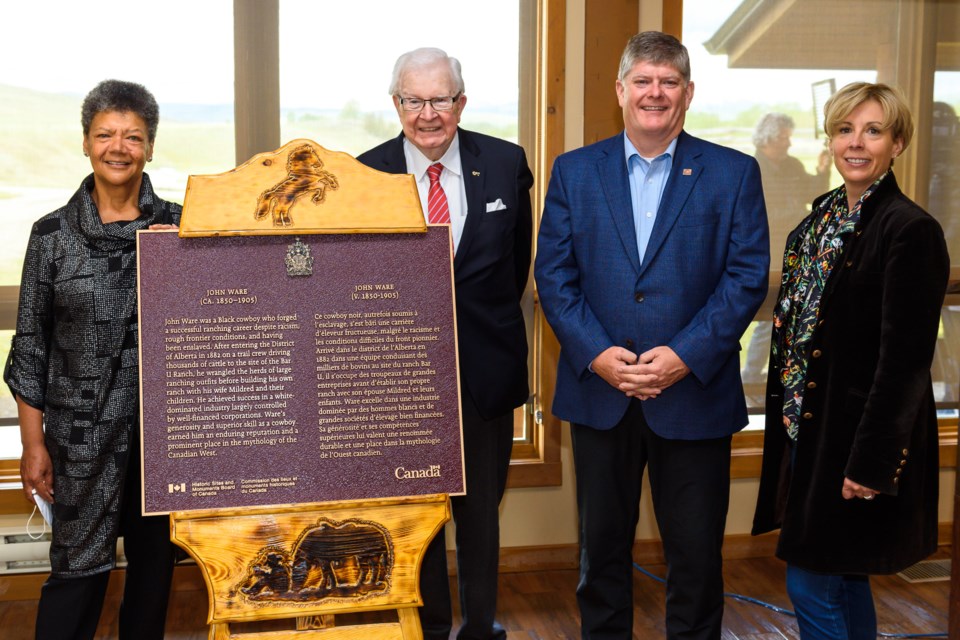FOOTHILLS COUNTY, Alta — Black cowboy John Ware was recognized by the Government of Canada during a ceremony at the Bar U Ranch National Historic Site on June 6.
Ware was designated as a person of national historic significance, and a plaque unveiled during the ceremony will be on permanent display at the ranch 15 km south of Longview, in Foothills County.
Janet Annesley of Millarville nominated Ware for the special designation under Parks Canada's National Program of Historic Commemoration and said the inspiration to put forward his name came from the documentary film John Ware Reclaimed by Cheryl Foggo.
Not only did Ware escape slavery, journey into Canada in rough frontier conditions and prove himself as a cowboy to his peers, he was subject to racism much of the time.
"We often tell ourselves the story that he came here, and he was free, and he lived his life as a free man on his merit,“ Annesley said. “I think it needs to be told again and again that he continued to overcome many challenges throughout his life.”
Ware gained a lasting and notable place in the history of the Canadian West, based on a reputation for generosity and superior skill as a cowboy. He made important contributions to the community, despite having to overcome racism to contribute the way that he did, Annesley said.
“Clearly, he was a leader,” Annesley said. “But obviously he was an incredible friend to many people in the community, and that really stood out to me.”
Ware came to the area in the 1880s and became a legendary figure in the cattle industry.
He built a successful ranching career in the white-dominated industry.
Foggo, an author, playwright and filmmaker, said little is known about Ware’s life before he arrived on the prairies and settled in what would come to be known as Alberta.
For example, we don’t know the day, month or year he was born, and he himself may not have known, said Foggo.
“That was not uncommon for people who were enslaved,” she said.
Along with the uncertainty of his birth date, which is believed to be around 1850, there is no definitive place of birth, and without those details it’s hard to put together a picture of his early life, including how he acquired his skill as a cowboy.
Many tales of Ware’s strength and ability stray into the realm of the mythical, said Foggo.
“What emerges out of the folklore, however, is that he was the most skilled horseman around, a pillar of the ranching community, an innovator and a sly wit.
“He stood out then, from all men of his time. He stands out still. His story is part of our story, our long, deep, rich story,” Foggo said.
The plaque will be on permanent display at the Saddle Horse Barn, which Ware helped build on the Bar U Ranch property, where he worked until 1884.
Ware died in 1905.



